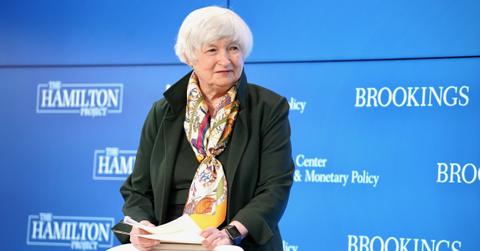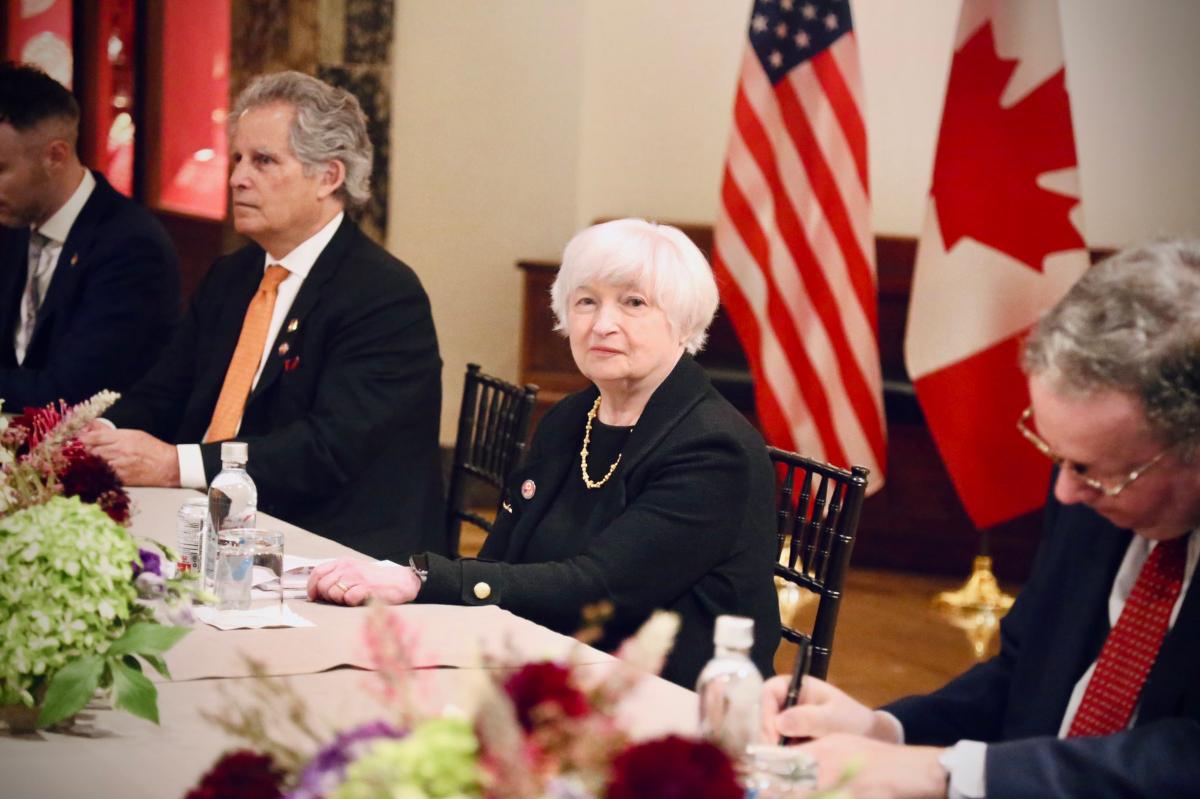Janet Yellen Downplays Recession Risk, Calls It a 'Transition'
U.S. Treasury Secretary Janet Yellen downplayed recession risks and said that the economy is in a "transition." Is she right or wrong?
July 26 2022, Published 8:35 a.m. ET
U.S. Treasury Secretary Janet Yellen has once again downplayed recession risks. President Joe Biden has also reiterated similar views and said that he doesn't think the U.S. economy will enter into a recession. Yellen said that the economy is in a “transition,” a term which is similar to Fed Chair Jerome Powell’s previous description of inflation as “transitory.”
As things turned out, U.S. inflation wasn’t transitory and kept on rising gradually, surpassing 9 percent in June. The Fed retired the term "transitory" in November 2021, and is now worried that inflation could get “entrenched.” The Biden administration recently got into a controversy over what some saw were attempts to change the very definition of a recession. Could Biden and Yellen get the economy wrong, just as Powell and the Fed did in 2021?
What did Janet Yellen say about the U.S. recession?
Yellen said that the U.S. economy isn't in a recession. She acknowledged that it isn't certain that the economy will avoid a recession but added, “I think there is a path that keeps the labor market strong and brings inflation down."
Yellen added that “recession is broad-based weakness in the economy.” The widely accepted definition of a recession is an economic contraction for two consecutive quarters. The NBER (National Bureau of Economic Research), which is tasked with officially declaring a recession in the U.S., describes it differently. Recently, the White House received flak for trying to “redefine recession.” However, it was only putting across what the NBER defines as a recession.
Is Janet Yellen's economic view wrong?
While downplaying recession risks, Yellen said, “But we’re in a period of transition in which growth is slowing and that’s necessary and appropriate.” The Fed had also called inflation transitory in 2021 and continued with the terminology until November. Until then, it had become obvious that inflation is sticky and not merely a supply chain issue as the Fed believed.
Drawing an analogy with inflation, which the Fed got wrong, the Biden administration also risks getting it wrong on the economy. While there's little denying that the U.S. job market has been strong and consumer spending is holding up well, there are signs of stress.
Many Big Tech companies are cutting down on hiring amid the uncertainty. The jobless claims have also spiked to multi-month highs, which is an early indicator of a softening job market. The housing market appears to be in a shaky spot as rising mortgage rates have dampened demand.
The U.S. economy is cooling quickly.
We are in the second-quarter earnings season and there has been a flurry of warnings from companies over the slowing growth. Snap warned of slowing growth in the ad market. Now, Walmart has warned of a sales slowdown, particularly in discretionary products and apparel. Far from being short of inventory, many companies, whether it be in retail, chip manufacturing, and PCs, now find themselves saddled with excess inventory.
As the year progresses, companies might take more steps to clear their inventory. This would have a positive impact in a sense and help lower inflation. However, destocking has a negative impact on economic growth.
Overall, the U.S. economy is cooling down quickly and at least based on their public response, both Biden and Yellen seem to be downplaying recession risks. With inflation at a multi-decade high and the fiscal deficit already ballooning, there isn't much that the Biden administration can do to fend off a recession.


